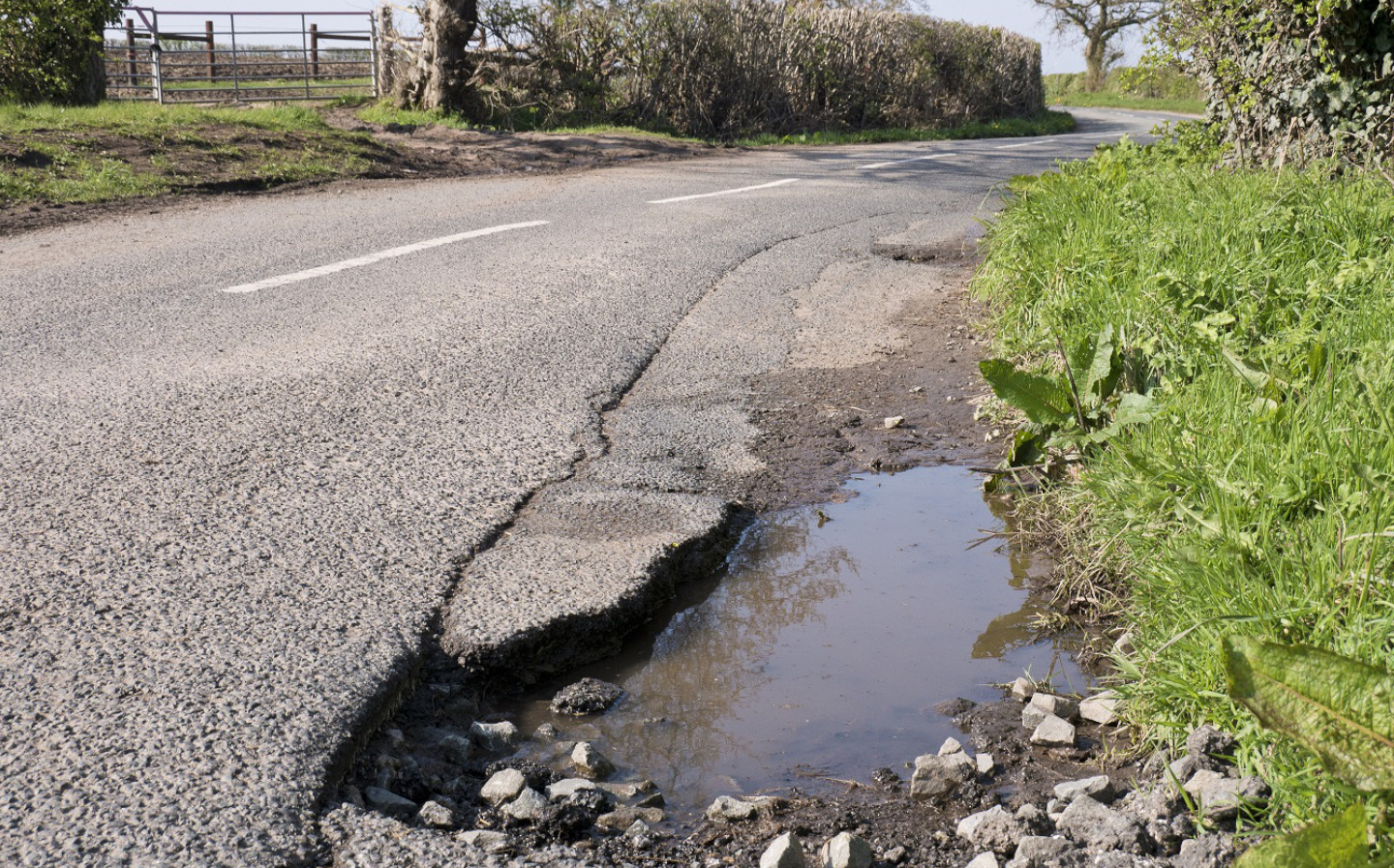Pothole crisis to worsen due to budget cuts, freezing weather and Russia sanctions
Situation 'shocking', says AA
The AA has described as “shocking” the pothole crisis in the UK, as budget cuts, freezing weather and sanctions on Russia are all contributing to the worsening state of the road network.
Weeks of rain followed by freezing weather have further damaged the UK’s crumbling roads, with some county councils recording more potholes by the middle of January than for the entirety of the same month last year.
Up to January 20, some 4,156 potholes were recorded in the Devon County Council area, compared with 3,494 for the same period a year earlier.
According to data from the RAC, UK drivers suffered far more pothole-related breakdowns in the final three months of 2022 than during the previous three months.
The organisation’s roadside staff attended an average of 20 breakdowns a day between October and the end of the year for faults such as broken springs and buckled wheels — in total, around 1,800 callouts for pothole-related breakdowns, up from 1,462 over the previous quarter.
According to other data released by the RAC, 86% of respondents to the organisation’s 2022 Report on Motoring said that they had had to steer to avoid potholes on several occasions and that poor road surfaces represented a major concern.
Some 55% of respondents said pothole repairs in their local area were either “poor” or “very poor”.
“The wet weather we’ve had both before and after the coldest start to winter in 12 years in December is the perfect recipe for potholes to start peppering the roads,” said the RAC’s head of roads policy, Nicholas Lyes.
“We fear that by the spring, drivers will be plagued by a plethora of potholes across the country’s roads which makes journeys uncomfortable and frustrating or, worse still, could lead to very expensive garage repair bills — the last thing anyone wants in a cost-of-living crisis.
“It’s also important to remember that potholes are so much more than just an annoyance, they are a true road safety danger, especially for those on two wheels as they represent a huge risk to their personal safety.”
The situation isn’t entirely caused by the most recent spell of challenging weather conditions, however.
Lyes said that there are too many occasions where potholes are poorly patched up by cash-strapped councils, resulting in potholes returning all too quickly.
The RAC’s statistics are backed up those from the AA, which said that in the first two weeks of November, it attended an extra 225 daily callouts related to punctures and damaged wheels caused by potholes — something the body’s president, Edmund King, described as “shocking”.
“It’s frankly absurd that, as a country, we seem unable to get on top of such an age-old problem when roads play such an important role in people’s everyday lives — and are vital to moving goods and businesses delivering services,” Lyes said.
“Councils are crying out for more funding to do a proper job in getting their roads up to a decent standard. With drivers still rating the ongoing poor state of the roads as one of their biggest motoring frustrations, they can only hope that 2023 is the year when the government finally sits up, takes notice of Britain’s perpetual problem with potholes and comes up with a better way to solve it.”
The RAC said that county councils around the UK are indeed “cash-strapped” when it comes to road repairs. In 2020, the government pledged some £2.5bn over five years to councils for road maintenance, with £500m set aside every year for pothole repair and other remedial work on roads.
In February 2022, however, the government announced that road maintenance funding to rural councils would be slashed by £480m.
Research at the time by the Asphalt Industry Alliance (AIA) found that, with the average pothole costing £41.61 to fill, the funding cuts would mean that approximately 11.5m potholes would go unfilled in 2022.
Since then, the cost of repairing a pothole has increased further, with councils reporting last August that the cost of filling a pothole had risen by 22% due to the escalating price of bitumen.
Russia had formerly been a major supplier of bitumen to the UK, but, as a result of sanctions on the country due to its invasion of Ukraine, the oil-based product has become more expensive and harder to come by.
With squeezed council budgets and the rising cost of materials, the outlook for the pothole situation on the UK’s roads doesn’t appear likely to improve any time soon.
Related articles
- After reading about the worsening problem of potholes, you might like to read about the ULEZ being extended to all London boroughs
- You might also like to see our guide to repairing alloy wheel damage
- Car makers’ electric vehicle plans for 2023 and beyond
Latest articles
- Omoda 5 prototype review: Bargain family SUV is solid first effort for new Chinese brand
- Dacia Duster 2024 review: Rugged, affordable SUV modernised with electrification and quite the glow up
- Audi A3 Sportback 2024 review: Softly, softly, catchy premium hatchback buyer
- New electric-only Mini Aceman fills gap between Mini Cooper hatch and Countryman SUV
- Tesla driver arrested on homicide charges after killing motorcyclist while using Autopilot
- Porsche Macan 2024 review: Sporty compact SUV goes electric, but is it still the class leader for handling?
- F1 2024 calendar and race reports: What time the next grand prix starts and what happened in the previous rounds
- Aston Martin DBX SUV gets the interior — and touchscreen — it always deserved
- Nissan unveils bold look for updated Qashqai, still made in UK














